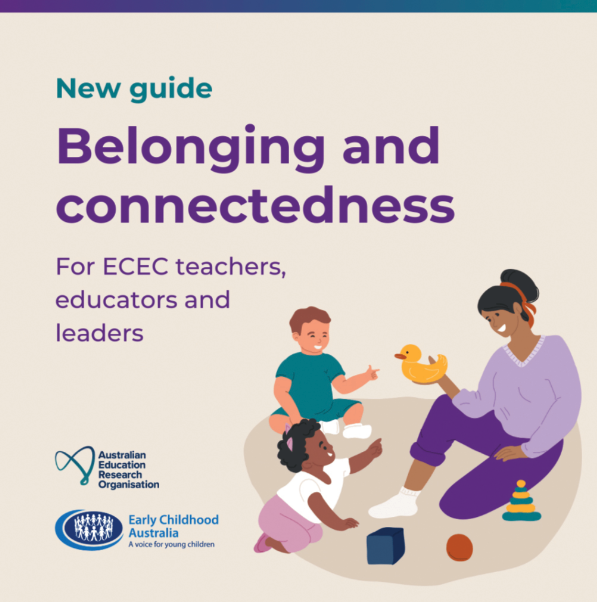
Early Childhood Australia (ECA) and the Australian Education Research Organisation (AERO) have released a new guide designed to help staff foster children’s sense of belonging and connectedness in early childhood education (ECE) centres, Emily Campbell writes.
The new Encouraging a Sense of Belonging and Connectedness in Early Childhood Education and Care Guide (the guide) contains practices that align with the Early Years Learning Framework V2.0, National Quality Standards (NQS) and Australian Professional Standards for Teachers (APST).
AERO CEO Dr Jenny Donovan said a strong sense of belonging and connectedness positively influences children’s overall learning and development, contributing to a positive and supportive educational environment.
“From birth, children form a profound sense of belonging and connection, forged through interactions with peers and responsive adults, exposure to well-designed learning spaces and opportunities to be active agents in their own learning,” Dr Donovan said.
“While many teachers, educators and leaders may be familiar with or already using some of the evidence-based practices in this guide, it can still be used to support critical reflection,” she said.
Improving practice
According to AERO, for a child, a positive sense of belonging includes feeling that:
- their teachers, educators and peers like, value and accept them
- the curriculum is interesting and relevant
- they are capable of succeeding
- their cultural identity is welcome and valued, and
- they can ‘be themselves’ within appropriate boundaries.
Belonging and connectedness are central themes in the Early Years Learning Framework and the guide outlines best-practice approaches for improving these in children aged from birth to five years.
Practices detailed in the guide have been assessed and classified against AERO’s Standards of evidence, with AERO’s review of the research and approaches, including various papers rating them at medium, high and very high confidence.
Each practice details clear strategies, reflection questions and snapshots of practice scenarios to assist staff in understanding and implementing the guide.
The practices cover how ECE staff and services can encourage a sense of belonging and connectedness by creating authentic connections with children and families, providing culturally safe and responsive environments, empowering children’s agency and voice and planning for play-based learning with intentionality.
Growing body of knowledge
The guide complements and builds on previous similar practice guides AERO has published on fostering belonging and connectedness in primary and secondary school settings.
AERO encourages ECE staff to use the practices in the guide alongside the work already being done in an ECE centre to complement existing practices and further critical reflection.
The guide has a section ECE practitioners can use for professional development to reflect on their current practice and identify areas for improvement and potential barriers within their centres when it comes to children’s sense of belonging and connectedness.
Members can learn more and access the guide online at https://bit.ly/40f75Rd



































































































































